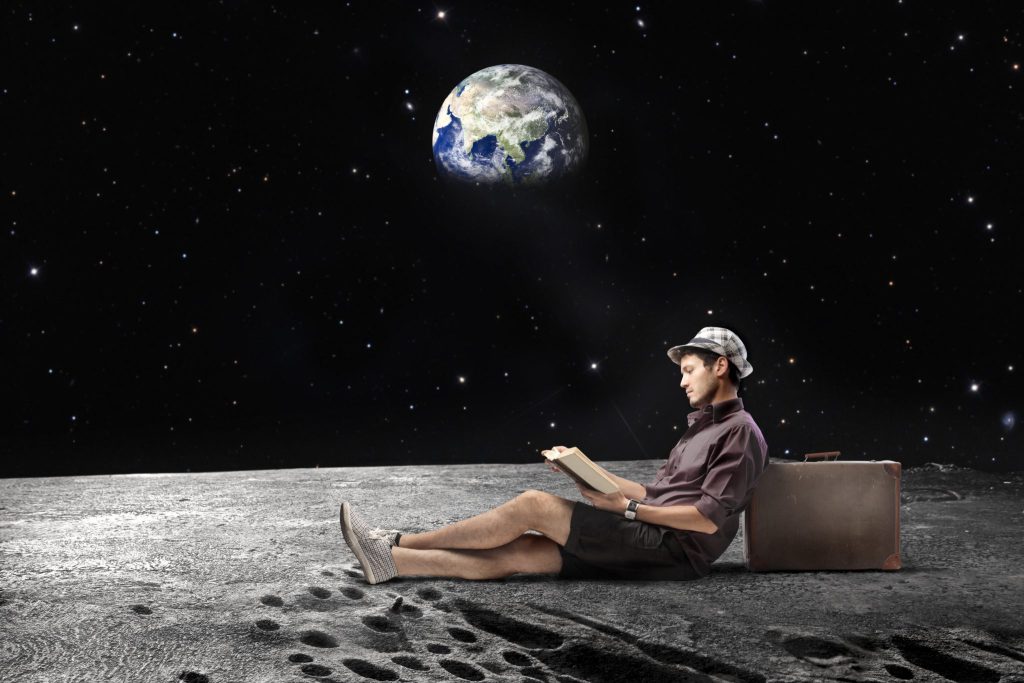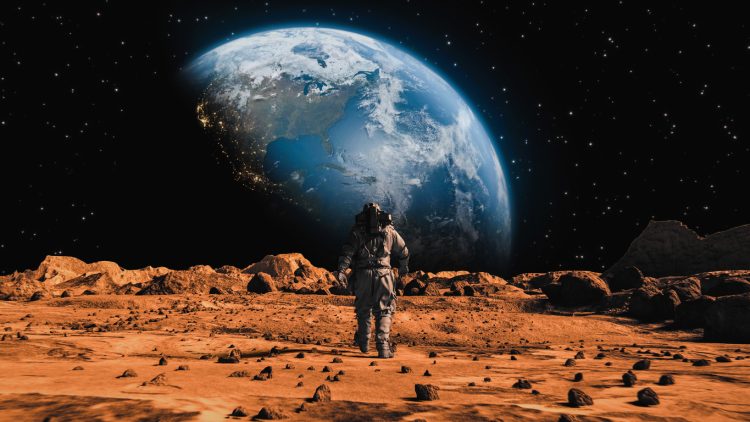Introduction
Space tourism is a concept that, until recently, seemed like something out of science fiction. The idea of everyday people traveling to space for leisure, to experience weightlessness, view Earth from orbit, or even spend time on commercial space stations, was once reserved for the imaginations of futurists and movie makers. However, with the rapid advancement of space technology and the growing involvement of private companies like SpaceX, Blue Origin, and Virgin Galactic, space tourism is gradually becoming a reality.
In this article, we will explore whether space tourism will indeed become a regular mode of travel for future generations. We will examine the technological, economic, and social factors that could drive or hinder its widespread adoption, and consider the potential impact of this new frontier on the way we perceive travel, leisure, and even our relationship with Earth.
1. The Current State of Space Tourism
A. Private Companies Leading the Charge
Over the past few years, several private companies have made significant strides in making space tourism possible. These companies are focused on developing spacecraft that can take paying customers to space for brief suborbital flights.
- Virgin Galactic: Founded by Richard Branson, Virgin Galactic aims to provide suborbital spaceflights for tourists, offering a few minutes of weightlessness and a view of Earth’s curvature. The company has conducted several test flights, and with Branson himself taking a ride in 2021, Virgin Galactic is paving the way for future space tourists.
- Blue Origin: Founded by Amazon’s Jeff Bezos, Blue Origin has also made considerable progress with its New Shepard spacecraft, designed to carry passengers on suborbital flights. The company has successfully flown both uncrewed and crewed missions, including the high-profile flight in 2021 with Bezos himself and other passengers.
- SpaceX: While SpaceX, led by Elon Musk, is known for its focus on interplanetary travel and cargo missions, it has also shown interest in space tourism. The company’s Crew Dragon spacecraft has already been used for crewed missions to the International Space Station (ISS), and it has plans to take private passengers on orbital flights, including trips around the Moon. SpaceX’s Starship is also under development, aiming to offer more extensive space travel experiences, including trips to the Moon and Mars.
These companies represent the first steps toward making space travel a viable option for individuals beyond the realm of astronauts and scientific professionals. As they continue to innovate and reduce the cost of space travel, the possibility of space tourism becoming mainstream in the coming decades becomes more tangible.
2. Technological Challenges and Advancements
A. Spacecraft and Infrastructure
For space tourism to become a common mode of travel, technological advancements in spacecraft design, safety, and infrastructure are crucial.
- Safety and Reliability: Space travel has always carried significant risks, and the safety of tourists will be a major concern. Suborbital flights, which offer a short journey into space, still pose dangers such as the potential for malfunctions or failures in the spacecraft’s life support systems. Ensuring the safety of passengers will require extensive testing, rigorous regulations, and the development of reliable technologies.
- Reusable Rockets: The development of reusable rockets is one of the most significant breakthroughs that could make space tourism feasible for the general public. Companies like SpaceX and Blue Origin are working on making their rockets reusable, drastically reducing the cost of space launches and making it more affordable to send passengers to space. This could eventually bring down the cost of a ticket to space from millions of dollars to a more affordable price.
- Infrastructure on Earth and in Space: As the space tourism industry develops, infrastructure will need to be built both on Earth and in space. Spaceports will be necessary to launch and receive spacecraft, while orbital hotels or stations might be developed for extended stays in space. A significant amount of investment will be required to create this infrastructure, as well as the technology to support passengers during their space trips.
B. Spacecraft Comfort and Experience
Another challenge for space tourism is ensuring that passengers have a comfortable and enjoyable experience while in space. Zero gravity can be disorienting for first-time travelers, and long-duration spaceflights, even if they are just suborbital, need to provide amenities such as food, entertainment, and medical care in a space environment.
- Space Travel Comfort: Companies like Virgin Galactic and Blue Origin are designing their spacecraft to ensure that passengers have a comfortable experience, with large windows offering panoramic views of space and Earth. However, as the technology matures, improvements will be needed to make space travel more accessible and pleasant, especially for older passengers or those with disabilities.
- Health Considerations: Space tourists will face unique health challenges, such as the effects of microgravity on the human body. Prolonged exposure to microgravity can cause muscle atrophy, bone density loss, and fluid shifts in the body. While space tourism is currently focused on short-duration flights, future missions will need to account for these health concerns, particularly as space tourism extends beyond suborbital flights and longer stays in orbit become more common.
3. Economic Considerations
A. The Cost of Space Travel
Currently, the cost of space tourism remains prohibitively expensive. Tickets for suborbital flights range from hundreds of thousands to millions of dollars, making it accessible only to the very wealthy. However, several factors could drive down the cost over time and make space tourism more affordable for the general public.
- Economies of Scale: As more space tourists travel and demand increases, economies of scale could bring down the price of space travel. The more flights that occur, the cheaper it will become to manufacture spacecraft, launch rockets, and maintain infrastructure.
- Technological Advances: Reusable rockets, along with more efficient spacecraft and materials, can significantly lower the cost of space travel. For example, SpaceX’s successful reusability of its Falcon 9 rocket has already drastically reduced the cost of launching satellites and cargo to space, a model that could be replicated for human spaceflights.
- Commercial Opportunities: As the space tourism industry grows, new business opportunities will emerge, such as space hotels, lunar travel, and even asteroid mining. These commercial ventures could provide additional funding and support the growth of the space tourism industry.
B. Democratization of Space Travel
While the initial cost of space tourism will likely remain high, the long-term goal for many advocates is the democratization of space travel. If space tourism becomes more affordable, it could provide broader access to people from different socioeconomic backgrounds, opening up the experience to a much wider audience.
- Space Tourism as a Luxury to Everyday Travel: As technology advances and space tourism becomes a more frequent and reliable experience, it is possible that, in the distant future, space travel could become as commonplace as taking a flight from New York to London today. This would be a massive cultural shift, with space becoming just another destination to visit for both leisure and business purposes.

4. Cultural and Social Implications
A. Changing Perspectives on Earth
One of the most profound effects space tourism could have is the way it changes our relationship with Earth. For many space tourists, the most transformative part of their experience is the ability to see Earth from space. This “Overview Effect,” where astronauts report a newfound appreciation for the fragility and interconnectedness of life on Earth, could potentially have a lasting impact on those who experience it.
- Environmental Consciousness: Seeing Earth from space can inspire a stronger commitment to environmental protection and sustainability. Tourists might return from space with a deeper sense of urgency regarding issues such as climate change, conservation, and global cooperation.
- Space as the Final Frontier for Leisure: As space travel becomes more accessible, it could shift the nature of travel itself. Rather than just exploring new countries and cultures on Earth, future generations could begin to view space as an exciting, natural extension of travel and exploration. Traveling to space, perhaps even for extended periods, could become as mainstream as flying to an international destination today.
B. The Social Divide in Space Tourism
While the democratization of space tourism is a potential future goal, the reality of who gets to travel to space first will likely be influenced by socioeconomic factors. Space tourism may initially become a symbol of wealth and privilege, with only the wealthiest individuals being able to afford tickets to space.
- Access to Space: The early days of space tourism will likely mirror the development of air travel, which was initially an expensive luxury reserved for the elite. Over time, however, as technology advances and infrastructure improves, it is possible that the price of tickets will decrease, allowing a broader cross-section of society to experience space.
5. Conclusion: The Future of Space Tourism
Space tourism holds great promise, and while there are significant hurdles to overcome, including technological, economic, and social challenges, the potential for it to become a mainstream mode of travel in the future is growing. With private companies leading the way, advancements in technology, and the potential for lower costs in the future, it is conceivable that space tourism could become a regular experience for future generations.
In the short term, space tourism will remain an exclusive activity for the wealthy, but in the long term, the prospect of space travel becoming more affordable and accessible to a larger population is very real. Just as air travel went from a luxury to a common mode of transportation in the 20th century, space tourism could follow a similar trajectory, transforming the way we think about travel, leisure, and our place in the universe.
As we look toward the stars, it’s clear that the dream of space tourism is becoming closer to reality. Whether it becomes a common mode of travel for future generations will depend on how we address the technological, economic, and cultural challenges that lie ahead.











































Discussion about this post